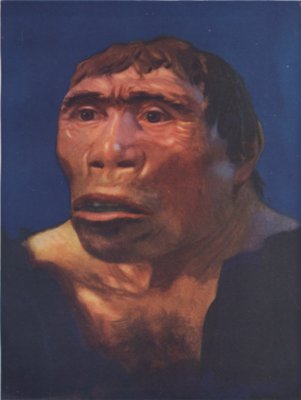Amateur finds 700,000-year-old Java Man in German quarry
 Hanover, Germany - Fragments of skull found in a German quarry have turned out to belong to Java Man, an early human previously thought to be native to Asia, triggering speculation that Asian hominids colonized Europe.
Hanover, Germany - Fragments of skull found in a German quarry have turned out to belong to Java Man, an early human previously thought to be native to Asia, triggering speculation that Asian hominids colonized Europe.
Alfred Czarnetzki, a University of Tuebingen professor, announced Thursday that the remains, found in 2002, were "at least 700,000 years old" and so like Java Man "that it could have been his twin."
The remains belong to the Homo erectus species, whereas modern humans are Homo sapiens.
Karl-Werner Frangenberg, a fossil-hunter, found part of the skullcap in 2002 at a gravel pit at Leinetal near Hanover. His wife, who shares the hobby, found part of the temple two years later.
The fragments, now believed to be the oldest human remains ever found in Germany, are on display in a Hanover museum.
Previously Germany's oldest remains were of another species, Homo heidelbergensis, found in 1907 and dated at 600,000 years old.
Czarnetzki admitted that dating the remains was inexact, but said he was convinced by the similarity to finds since 1891 on Java.
"It suggests the Asian ones spread to Europe," he said, adding that his article on the find had been accepted by the Journal of Human Evolution and would be published soon. He said no DNA was in the fragments, but there had been some traces of protein. (dpa)